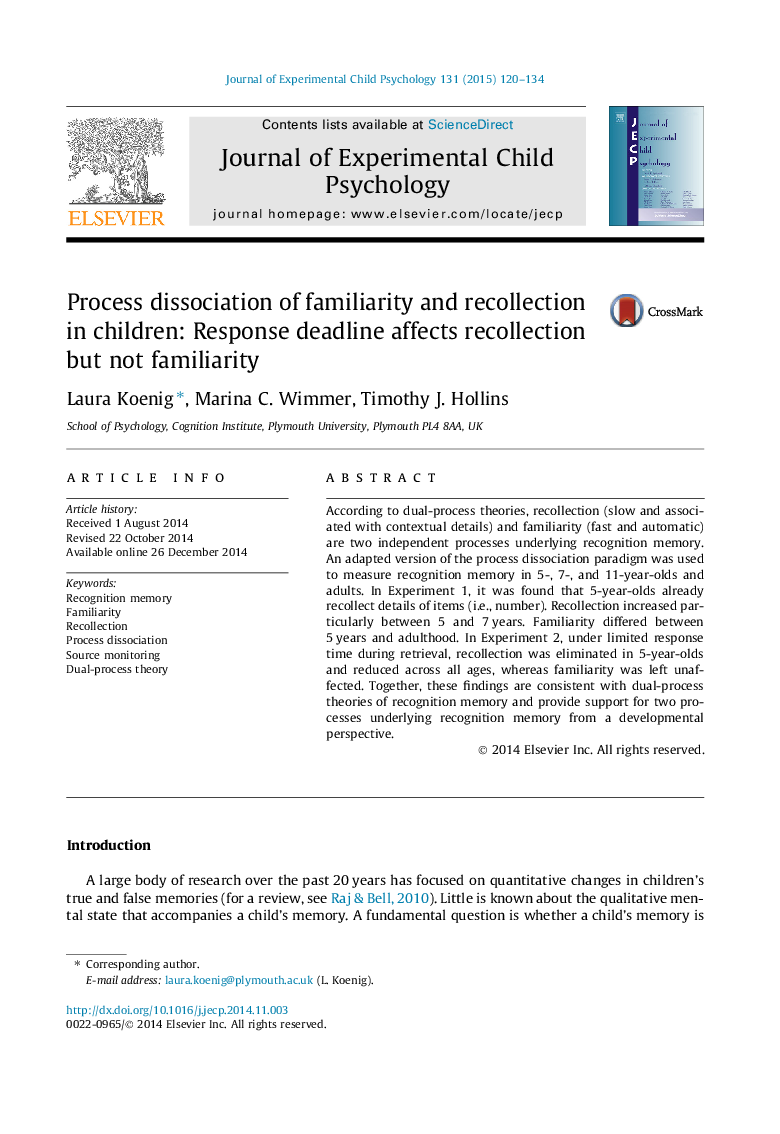| Article ID | Journal | Published Year | Pages | File Type |
|---|---|---|---|---|
| 918021 | Journal of Experimental Child Psychology | 2015 | 15 Pages |
•Familiarity and recollection was examined with the process dissociation paradigm.•Recollection is already available from age 5 onwards.•Limited response time reduces recollection but not familiarity in 5- to 11-year-olds and adults.•Findings support a dual-process account of recognition memory in children.
According to dual-process theories, recollection (slow and associated with contextual details) and familiarity (fast and automatic) are two independent processes underlying recognition memory. An adapted version of the process dissociation paradigm was used to measure recognition memory in 5-, 7-, and 11-year-olds and adults. In Experiment 1, it was found that 5-year-olds already recollect details of items (i.e., number). Recollection increased particularly between 5 and 7 years. Familiarity differed between 5 years and adulthood. In Experiment 2, under limited response time during retrieval, recollection was eliminated in 5-year-olds and reduced across all ages, whereas familiarity was left unaffected. Together, these findings are consistent with dual-process theories of recognition memory and provide support for two processes underlying recognition memory from a developmental perspective.
